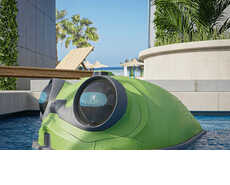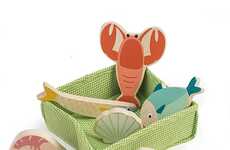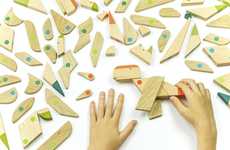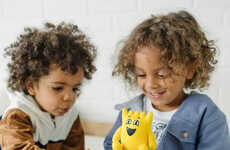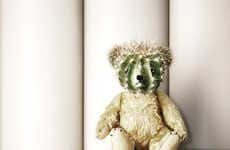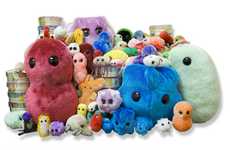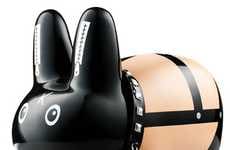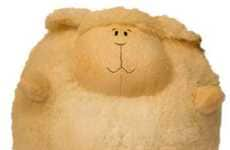
Food Chain Friends
Marissa Brassfield — November 9, 2008 — Life-Stages
Teetersaw's 'Food Chain Friends' are an adorable set of plush toys designed to help parents teach kids about the ecosystem in a fun way. The Food Chain Friends come from a planet called Daro, which is oddly similar to Earth except its wildlife is social and gracious in its communal understanding of the ecosystem.
There are two lines of the Teetersaw 'Food Chain Friends,' the Alpha series and the Beta series. Each features a different group of cute-but-ugly species; the Alpha animals live on the prairie, while the Beta animals live in the forest.
Family Fun Magazine and TD Monthly have named the Teetersaw 'Food Chain Friends' their Best Toys of 2008 and 2008 Top Toy Award, respectively. The plushies are available at FAO Schwartz or at the Teetersaw website (see Read More URL).
There are two lines of the Teetersaw 'Food Chain Friends,' the Alpha series and the Beta series. Each features a different group of cute-but-ugly species; the Alpha animals live on the prairie, while the Beta animals live in the forest.
Family Fun Magazine and TD Monthly have named the Teetersaw 'Food Chain Friends' their Best Toys of 2008 and 2008 Top Toy Award, respectively. The plushies are available at FAO Schwartz or at the Teetersaw website (see Read More URL).
Trend Themes
1. Eco-friendly Toys - Parents are increasingly looking for eco-friendly toys that teach kids about the ecosystem, creating opportunities for toy companies to develop innovative and sustainable products.
2. Edutainment - Teaching kids about the environment through fun and engaging toys is an effective way to create edutainment opportunities for younger generations.
3. Interactive Learning - The popularity of interactive learning toys that promote hands-on learning experiences presents opportunities for toy companies to create more products that teach kids about sustainability and the environment.
Industry Implications
1. Toy Manufacturing - Toy companies can capitalize on the demand for eco-friendly and educational toys by developing new lines of sustainably produced and interactive learning toys that promote environmental consciousness among younger generations.
2. Education and Training - The increasing popularity of toys that teach kids about the environment presents opportunities for educators and trainers to incorporate these toys into their curriculums and lesson plans, promoting a hands-on and engaging approach to learning.
3. Retail - Retailers can tap into the growing consumer demand for eco-friendly and educational toys by featuring and promoting these products in their stores, providing parents with a wider selection of sustainable and impactful toys for their kids.
2
Score
Popularity
Activity
Freshness



